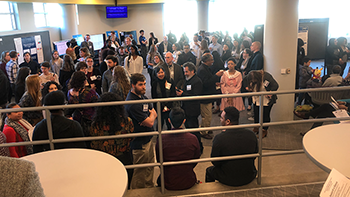Factors that Influence City Micro-mobility: An Understanding of Campus E-Scooter Use
Description/Abstract/Artist Statement
This study explored the key factors that affected the use of shared electronic scooters (e-scooters, a form of city micro-mobility) as well as users’ awareness of any potential privacy issues with e-scooters, using the Lime scooters on ODU campus as a testbed. We recruited 12 frequent e-scooter users from ODU campus for semi-structured interviews designed to understand the users’ motivations and concerns. Our results suggest that students’ primary purposes for utilizing the e-scooters fall under the categories of convenience and entertainment. In terms of the users’ privacy concerns, our results show that they are largely unaware of the privacy terms used by the mobile application that is required to use the e-scooters, and users especially lack the knowledge of data gathering by the application and the many ways data can be used. As participants became more knowledgeable of the capturing of their data, they demonstrated more privacy concerns during the interview. This research only contained results from a small sample of ODU students, and future research should be devoted to the generalization of the current results and solutions to increase users’ privacy awareness.
Faculty Advisor/Mentor
Jing Chen
Presentation Type
Poster
Disciplines
Human Factors Psychology
Session Title
Poster Session
Location
Learning Commons, Atrium
Start Date
2-8-2020 8:00 AM
End Date
2-8-2020 12:30 PM
Factors that Influence City Micro-mobility: An Understanding of Campus E-Scooter Use
Learning Commons, Atrium
This study explored the key factors that affected the use of shared electronic scooters (e-scooters, a form of city micro-mobility) as well as users’ awareness of any potential privacy issues with e-scooters, using the Lime scooters on ODU campus as a testbed. We recruited 12 frequent e-scooter users from ODU campus for semi-structured interviews designed to understand the users’ motivations and concerns. Our results suggest that students’ primary purposes for utilizing the e-scooters fall under the categories of convenience and entertainment. In terms of the users’ privacy concerns, our results show that they are largely unaware of the privacy terms used by the mobile application that is required to use the e-scooters, and users especially lack the knowledge of data gathering by the application and the many ways data can be used. As participants became more knowledgeable of the capturing of their data, they demonstrated more privacy concerns during the interview. This research only contained results from a small sample of ODU students, and future research should be devoted to the generalization of the current results and solutions to increase users’ privacy awareness.


